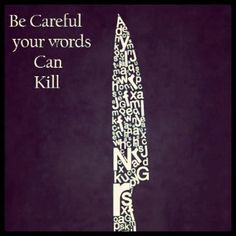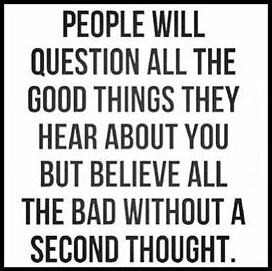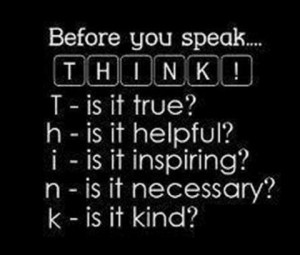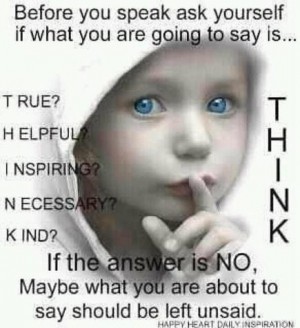 What is choice, really? Do you ever choose? Probably not.
What is choice, really? Do you ever choose? Probably not.
Choice: Selecting freely, AFTER consideration
I think, at some point in our lives we decide whether we want to be good or bad.
I decided twice. The first time I decided that somebody had to pay for my misery… and the only way to have them pay, whether they were guilty or not, is to be bad.
Then, when I learned the art and power of taking responsibility, of pulling the power to myself, I made a new decision, I decided to be on the side of good.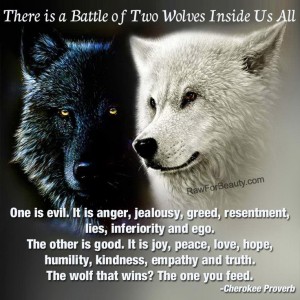 It is not an easy thing to switch sides: all my habits, societal habits, were on the wrong side, on the side of bad.
It is not an easy thing to switch sides: all my habits, societal habits, were on the wrong side, on the side of bad.
And switching sides is not instant, not fast, and it’s not always obvious.
For a while I was in limbo. There were distinct moment of choice. Each time, in order to chose good again, I needed to clear the deck, needed to tell the truth, I needed to feel shame, and guilt, and regret.
I am still dealing with one “bad” stuff 1 : I talk about people. I mean to talk about them factually, without any malicious intent, but intent and results are not the same.
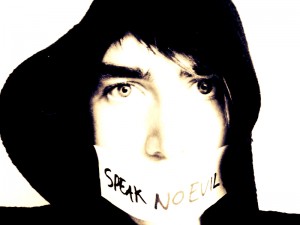 Teal says: there is no evil in the world. She says: if your intent is pure… if your intent to do something good, then even killing is OK… really, is that what Teal said? ugh. (did you get that? I talked about someone… lol.)
Teal says: there is no evil in the world. She says: if your intent is pure… if your intent to do something good, then even killing is OK… really, is that what Teal said? ugh. (did you get that? I talked about someone… lol.)
Kabbalah’s interpretation of what’s evil suits me, and will suit you too: it is very levelheaded.
Kabbalah distinguishes two desires:
- desire to receive for the self alone
- desire to receive for the sake of sharing.
WTF, right? They are not very obviously recognizable, not at all. 2
Clarity is Power
But to the degree that you understand and internalize those distinctions, to the same degree you’ll be able to walk the strait and narrow, and be able to take the side you wish: I hope you’ll take the side of good… but it’s really up to you. 3
Our habit, 200,000 years old, to never look beyond the surface, never look beyond the obvious, is our enemy here.
People harm another for the sake of their gratification, for their self-interest.
But self-interest is not easy to see… or it is very easy to cover up. 4
I said strait and narrow, and that’s exactly what it is.
Gossip in Kabbalah is equal to murder… Triple Murder. Speech as the Building Blocks of Our Souls 5
If I talk about another person and others are left with no real change their affinity towards the person I talk about: I managed to remain on the strait and narrow. But if the listener will now think poorly of the person I talk about, then I strayed into “desire to receive for the self alone” regardless of my original intention.
I talk about other people because I see there is something to teach through others’ example… that is the “good” intention. But my results can be evil… and that is (evil) what I produced with a good intention…
As you can see, it’s no wonder that I have been struggling with this exact issue for years now, with only incremental improvement… not much at all. It’s really a fine line. It’s really treacherous. It requires the skills of a brain surgeon.
How do I handle, how do I address my own guilt, shame, confusion?
So, how do I deal with these things? The things I need to deal with: my own guilt, shame, confusion, questions…
I, personally, am lucky: I can bring them to my classes, and have a breakthrough, an insight, an upsight… something worthwhile every time. Some are important revelations, some may even move me.
If it’s an issue for me, if I struggle with it, then most likely others are dealing with (or should be dealing with) it too… on either side of this issue, talking about people… either by being the one who talks, or being the one who is talked about. Either way they can now deal with it, it’s a win-win.
- I also, from time to time, have a hard time with anger, but I am 99% better than I used to be
- And if you asked Teal, the one that looks evil is even better, after all the person wants something for themselves, so f.. everyone else, right Teal?
- I have clients and students that consider themselves good, but do bad things… often. Is it a good person doing bad things, or is it a confused person doing all kinds of things: good and bad. A confused person not able to choose?
- Example: it is for their own good… or It’s for the common good
- gossip is like a three pronged tongue which kills three people: the person who says it, the person who listens to it, and the person about whom it is said
Baal Shem Tov, is said to have told his followers that the Kosher status of what comes out of one’s mouth (i.e., one’s words) is even more important than the Kosher status of what one puts into it. Many of the greatest tzaddikim, fearful that they would be led into the transgression of loshon hora (literally “evil speech”) cultivated silence as one of their cardinal virtues.
When we consider the meaning of slander in Jewish law we may be astonished by its breadth. In our culture we have become accustomed to regarding slander or gossip as the spreading of falsehoods or unverified rumors for malicious purposes. Indeed, American courts recognize “truth” and frequently lack of malicious intent as valid defenses against the legal charges of slander and libel. Judaism takes a completely different view: any negative, hurtful speech about others or even about oneself, whether true or false and whether or not it is spoken maliciously, is regarded as loshon hora and is prohibited. There are very few exceptions to this general statement. Rabbi Israel Meir ha-Kohen (1838-1933), the fabled Chofetz Chayim, taught that the only time it is permissible to speak poorly of another human being is when such speech is absolutely necessary to redress a past wrong or to prevent a future harm. However, even under these circumstances seven conditions must first be met:
The person about to speak poorly of another must (1) have evidence of that person’s dishonesty himself, (2) be very cautious and weigh the matter thoroughly before speaking, (3) first admonish the dishonest person himself in a calm, reassuring manner, (4) not exaggerate the offense (5) examine and be satisfied as to the purity of his own motives, (6) try to solve the problem in another way without slander, and (7) be sure that the result of his action will cause no more harm than a court would order if the matter were brought to public trial.
It should be obvious from this brief description of the laws of loshon hora that the conditions outlined by the Chofetz Chayim are very rarely met and that indeed gossip and slander, as defined in our tradition, is a very common thing. It is so common in fact that many individuals in their attempts to bring an end to their own loshon hora soon come to realize that gossip and slander constitutes the majority of their own everyday speech and that a first step in reducing one’s propensity to loshon hora is to cultivate silence in those interpersonal situations that are conducive to gossip. Indeed the sages tell us that it is so easy to cause harm with one’s tongue, that a person should work to make it difficult for himself to speak.

